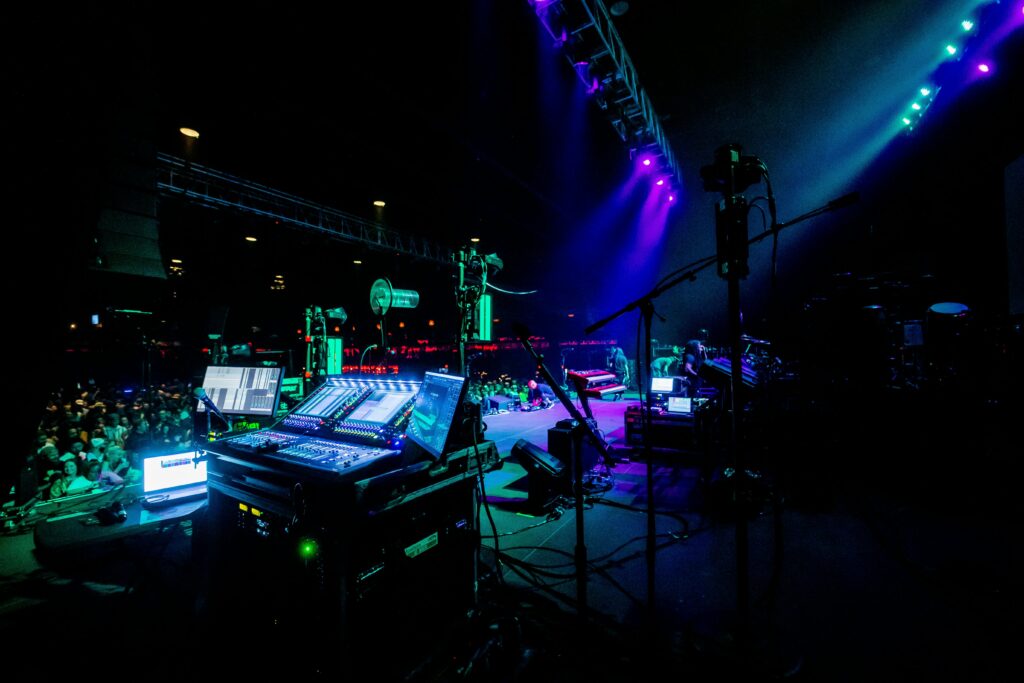The music industry is constantly evolving, driven by technological advancements, shifting consumer preferences, and emerging trends. As we look ahead to the future, it’s essential for industry professionals to stay informed about the latest developments shaping the landscape. In this article, we will explore the top music industry trends to watch in 2025 and beyond.
Live Streaming and Virtual Concerts
With the rise of live streaming platforms and virtual events, artists are finding new ways to connect with their fans. Virtual concerts have become increasingly popular, offering a unique and immersive experience for audiences worldwide. As technology continues to improve, we can expect to see more innovative approaches to live streaming in the music industry.
Blockchain Technology and NFTs
Blockchain technology has the potential to revolutionize the music industry by providing transparent and secure solutions for royalty payments, rights management, and music distribution. Non-fungible tokens (NFTs) are also gaining traction as a way for artists to monetize their work and engage with fans through unique digital assets.
Artificial Intelligence in Music Production
Artificial intelligence (AI) is playing a significant role in music production, from generating melodies to analyzing data for personalized music recommendations. AI-powered tools are helping artists streamline their creative process and experiment with new sounds, leading to innovative music compositions.
Sustainable Practices
As environmental consciousness grows, sustainability is becoming a key focus in the music industry. From eco-friendly music festivals to sustainable merchandise options, artists and organizations are prioritizing environmentally responsible practices to reduce their carbon footprint and promote a greener future.
Diversity and Inclusion
The music industry is increasingly recognizing the importance of diversity and inclusion, both on and off the stage. Efforts to amplify underrepresented voices, promote inclusivity in hiring practices, and support diverse talent are driving positive change and fostering a more equitable industry for all.
Data Analytics and Music Marketing
Data analytics is reshaping how music is marketed and consumed, providing valuable insights into listener preferences, trends, and engagement metrics. By leveraging data-driven strategies, artists and labels can better understand their audience and tailor their marketing efforts for maximum impact.
Remote Collaboration and Global Connectivity
The ability to collaborate remotely has become essential in the music industry, allowing artists and producers to work together across geographic boundaries. Global connectivity enables creatives to connect with a diverse network of talent, expanding opportunities for collaboration and cross-cultural exchange.
Augmented Reality and Immersive Experiences
Augmented reality (AR) and virtual reality (VR) technologies are enhancing the fan experience and creating interactive opportunities for artists. From AR-enhanced music videos to VR-powered live performances, these immersive technologies are transforming how audiences engage with music content.
Independent Artists and DIY Culture
The rise of independent artists and DIY culture is reshaping the music industry, empowering musicians to take creative control of their careers and connect directly with their fan base. Platforms that support independent distribution, crowdfunding, and artist-owned initiatives are enabling greater autonomy and artistic freedom.
Health and Wellness Initiatives
Mental health and wellness initiatives are gaining prominence in the music industry, with a growing emphasis on supporting artist well-being and addressing the challenges of touring, performance pressures, and industry demands. Organizations and advocacy groups are working to provide resources and promote mental health awareness within the music community.
Conclusion
The music industry is rapidly evolving, driven by technology and changing values. Artists and professionals must adapt to major trends like digital innovation, data use, and independent growth to stay competitive and connect with modern audiences.
Key Takeaways:
- Live streaming and virtual concerts are becoming key performance formats.
- Blockchain and NFTs offer new ways to monetize and manage music rights.
- AI tools are streamlining music production and personalization.
- Data analytics is now central to music marketing strategies.
- Independent artists are thriving with DIY tools and platforms.
Stay informed about top music industry trends to watch in 2025 and beyond. Consider taking the NYU x Billboard | Music Industry Essentials online course and certificate program for in-depth knowledge and skills in this dynamic field.








